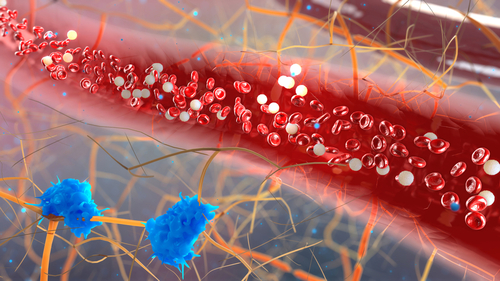Immunosuppressants Linked to Reduced Risk of Relapses in Subset of AAV Patients

Treatment with immunosuppressants does not improve kidney function, but is associated with reduced risk of vasculitis relapse in a rare subset of patients with ANCA vasculitis (AAV), a new study reports.
The research, “Patient Outcomes in Renal-Limited Antineutrophil Cytoplasmic Antibody Vasculitis With Inactive Histology,” was published in the journal Kidney International Reports.
Several histologic, or tissue-related, markers are significant as predictors of kidney function in AAV. These include the percentage of normal glomeruli (networks of tiny blood vessels involved in the filtering of blood), active cellular crescents (hallmarks of inflammation), and global sclerosis.
However, in rare cases, biopsy does not reveal active inflammation in the glomeruli, or glomerulonephritis, which complicates prognosis and treatment of AAV. Researchers believe these patients have prolonged asymptomatic disease, which later manifests as severe renal dysfunction with no evidence of active inflammation. In this context, the benefit of immunosuppressive medications is unclear.
Aiming to study the relationship of immunosuppressants and development of end-stage renal disease (ESRD) and vasculitis in AAV, researchers examined clinical data from 16 patients treated in eight centers in the U.S., U.K., Ireland, and Canada.
Clinical manifestations were limited to acute kidney injury in all but one patient, who also showed weight loss. However, the patients did not show evidence of active glomerulonephritis.
All patients (75% men, median age 62) presented with new-onset vasculitis in the kidney, while 88% were positive for MPO-ANCA antibody, one of the most common autoantibodies in vasculitis. Also, all had elevated serum creatinine — an indicator of kidney dysfunction — and active urine sediment, which contains red blood cells and white blood cells, and is typical of vasculitis.
At the start of the study, the patients’ mean estimated glomerular filtration rate (eGFR) suggested a significant impairment of kidney function. Five patients required dialysis, while 12 received immunosuppressive therapy. Also, 25% of patients experienced disease relapse and 38% developed ESRD.
The data revealed that patients with ESRD had lower baseline eGFRs, and consequently worse kidney function, and more often required dialysis at study start (83% vs. 0%).
“Renal function and dialysis dependence at presentation might increase risk for ESRD in patients with renal-limited AAV and inactive histology,” the scientists said.
Also, although it did not affect renal outcomes, immunosuppressants were associated with a reduced risk for vasculitis relapse, as 92% of patients who did not develop relapses took these medications, in contrast to only 25% of those with relapses.
“We recommend this consideration be factored into decision making and included in treatment discussions with patients,” the researchers wrote. But they caution that “the benefit of relapse prevention should be weighed against the risk of infection in the individual.”
Among the study’s limitations, the investigators mentioned the small group of patients, which may have precluded the detection of differences between patients with ESRD and those who relapsed, the lack of a comparison group, and the absence of a uniform protocol on the therapeutic regimens used.






